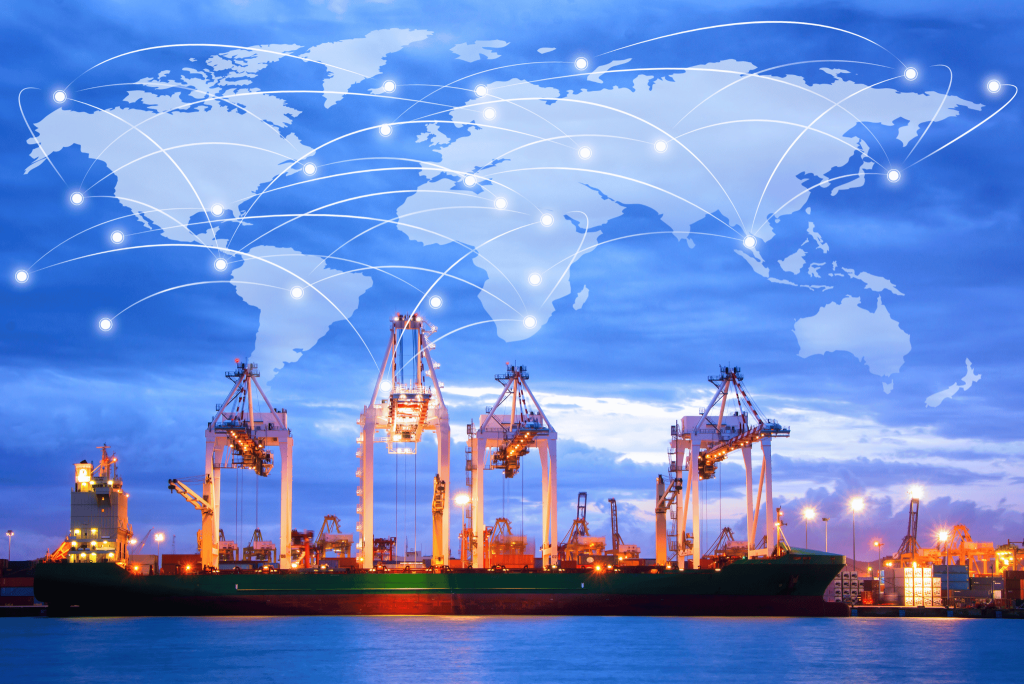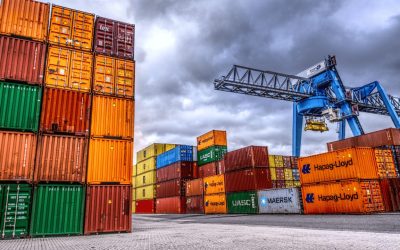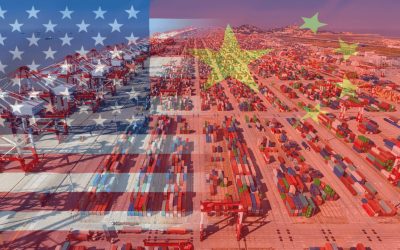Post-Brexit logistics face rising costs, complex regulations, and extended transit times, challenging UK-EU trade and small businesses’ survival.
Since the United Kingdom departed from the European Union, international logistics has faced unprecedented challenges. Brexit disrupted global trade flows and introduced new administrative barriers and additional costs that continue to impact importers and exporters on both sides of the English Channel.
According to Michael Page, a consulting firm, the impact on logistics has been significant, with effects ranging from increased transportation costs to the complete reconfiguration of supply chains. The adaptation process has been complex and, in many cases, painful for businesses reliant on cross-border trade.
Different studies have highlighted the magnitude of these changes over the past year. For instance, a Centre for Economic Policy Research (CEPR) report revealed that export costs from the UK to the EU have increased by 15% since January 2021. At the same time, trade volumes have declined by 23% over the same period.
These figures underscore British businesses’ difficulties complying with new regulations and customs procedures, which vary significantly among EU member states. Another noteworthy point is the 42% increase in transit times for goods transported from the UK to the EU, according to data from the UK’s Institute for Fiscal Studies. The rise in delivery times directly results from new inspections and additional documentation required at borders.
Moreover, an analysis by the British Chamber of Commerce emphasizes that small and medium-sized enterprises (SMEs) have been the hardest hit by these changes. Unlike large corporations that can absorb the additional costs or establish new operations within the EU, SMEs struggle to adapt to the reality of post-Brexit Europe. These businesses have seen their profit margins shrink. In many cases, they have had to exit the European market altogether due to the complexity and costs associated with cross-border trade.
Uncertainty remains a constant, with many business owners expressing concerns about the lack of clarity in the application of regulations and the potential for future regulatory changes that could further complicate logistics operations.
The Impact of Post-Brexit Logistics
One of the primary changes brought about by Brexit has been the increase in administrative and transportation costs. According to Michael Page, British exporters have had to absorb the additional costs of documentation and rising freight rates.

John Lucy, Head of International Transport at the UK’s Road Haulage Association, noted that export costs from the UK had reached unprecedented levels, partly due to the decline in the number of European haulers willing to pick up return loads in the UK. This situation has increased empty trips and higher transportation rates to the EU.
Another critical aspect is EU member states’ inconsistent interpretation of customs regulations. This disparity in the application of rules has added another layer of complexity for British exporters. Differences in IT systems and VAT rates among European countries further complicate the export process.
Additionally, Brexit has created a significant demand for specialized personnel in customs and international trade. The need for trained personnel in customs processes is not limited to intermediaries and exporters but has also extended to importers. Ben Lyons, Chief Operating Officer at Michael Page Logistics, highlighted that the demand for customs specialists has grown considerably, especially for those with language skills that enable them to resolve cross-border issues efficiently.
Challenges Entering the UK
Over three years after the UK’s exit from the European Union, uncertainties persist in the logistics industry. One of the most significant recent developments is the implementation of the EU Entry and Exit System (EES), which will come into effect in November this year.
The EES is an automated system designed to register travelers from non-EU countries, including the UK, each time they cross an EU border. Although its implementation was initially scheduled for 2022, it is now expected to be in force by October this year. This new system poses significant challenges for freight drivers, who must provide fingerprints and participate in facial scanning to enter the Schengen area.

The European Commission has proposed a solution in the form of an app that would allow drivers to pre-register, aiming to simplify the process at ports. However, this solution presents its challenges. First, there is concern about whether it is reasonable to require drivers to accurately complete all the required information. Second, there is uncertainty about the app’s availability when the EES goes live, suggesting delays at ports will be inevitable.
These delays will affect delivery times and generate additional costs for companies. The extra time in transit translates into additional wages for drivers, higher fuel consumption, and vehicle rental costs. The transporters must absorb these additional expenses or pass them on to their clients, potentially negatively impacting businesses’ competitiveness.
The Impact on Technology Industries
Information on the impact of Brexit on logistics is highly relevant for telecommunications, satellite, data center, and technology reseller companies looking to enter the UK market. Brexit has introduced new administrative barriers and additional costs in the supply chain, affecting the importation of technological equipment and essential components.
Companies in these sectors rely on a steady flow of hardware and advanced technology, meaning that delays and increases in transportation costs can directly impact product delivery and the installation and maintenance of critical infrastructure.
Moreover, as previously mentioned, the post-Brexit environment has increased the complexity of customs regulations, requiring companies to be well-prepared to comply with specific legal requirements in the EU and the UK. Compliance with these regulations is paramount to avoiding penalties and delays that could compromise the operation of vital technology services.

Partnering with an Importer of Record (IOR) becomes vital in this context. At Aerodoc, our DDP with IOR service helps optimize the supply chain, ensuring that products arrive on time and comply with all legal requirements in the UK.
By choosing us, companies can mitigate the risks associated with cross-border trade, reduce operational costs, and focus on their core business, knowing that their logistics operations are in safe and efficient hands. This strategic approach enables a seamless entry into the UK market.
Contact us to learn more about our services.




